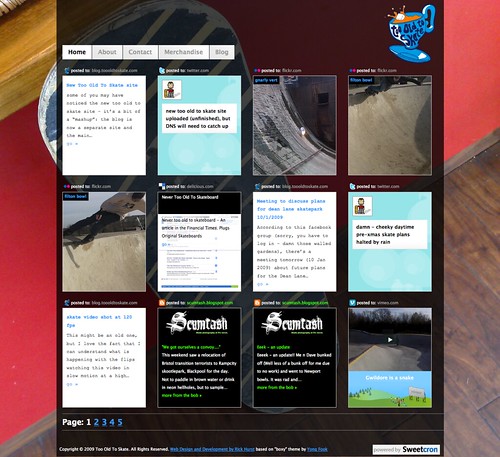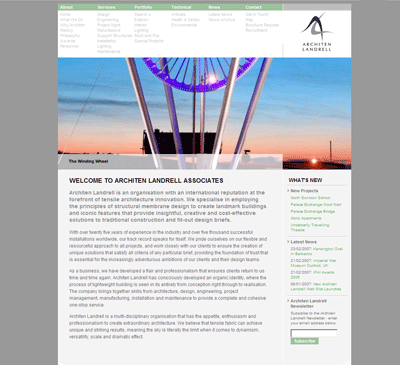plone conference 2010 day 2

Some notes and thoughts from day of plone conference 2010. These are mostly in note form, but wanted to get these online anyway, while they are fresh in my mind.
fixing the ungoogleable by Elizabeth Leddy
What happens when something breaks, and a simple google search doesn’t offer any results?
First, warn people (so they don’t bother you while you fix it, and they don’t panic).
Work out how quickly can you access your backups? I think this is very important – personally for smaller sites i’m doing individual site backups as packages mainly to make it convenient to restore them in a local dev environment, but I know some people are relying on whole server backups on tape. This would be laborious to restore in an emergency.
Isolation by elimination -> network, hardware, software, data
map out your system!
Eliminate things by switching them off – write your code so that it can handle dependencies being switched off.
Set up a system so that you have an isolated instance (so you can look at logs of only your own activity, rather than mixed with everyone elses)
Create a dashboard (maintenance page)
Monitoring
Write Test case’s to diagnose faults
Start writing a “help” email, but don’t send it. This is apparently known as “rubber ducking”. I do this all the time, I often spot my mistake when I past in a traceback to an email message to send to someone!
“horizon of intervention” – At what point do you need external help?
Get to know people with specialisms and buy them a beer! Participate in the plone community (I really need to do more of that).
Create tickets and close them as you go
Document your processes.
The state of plone caching by Ricardo Newbery
cachefu – useful tool, but as far as “internet time” goes, this is a little long in the tooth now (started 2006). End of life – critical bugfixes only
plone.app.caching – will be in future plone releases, but available now
load testing with funkload (not accurate regarding CSS/ image discovery)
load testing with multi-mechanize
BrowserMob – not free
Building a custom app with plone with minimal development by Eric BREHAULT
This was extremely interesting – Eric is the project manage for Plomino – a plone add-on that provides application development toolkit for creating database applications within plone – i.e. the types of database applications that non-technical people might create on there own machines with Lotus Domino, Filemaker or Access. The data is still stored in the ZODB, but models and forms can views can be created through the web. Formulas are done in python.
I can see this being really useful – all too often I end up building custom applications based on complex access database or excel spreadsheets i’ve been provided, but if I can persuade clients to use Plomino, then not only will it help get that data in a format suiteble for building a web application, but data can be collaborated on across teams, rather then emailing around (and inevitably forking spreadsheets and databases). There were some nice examples of data visualisation – a great quote “almost useless, but very nice”” – you need these to impress your boss.
Themeing with XDV (Diazo) Laurence Rowe
I wrote some notes on this yesterday, connected to Nates Deliverance talk, so won’t go into this here, other than to quote Laurence: “we write XSLT, so you don’t have to”
collective.amberjack: chapter one. The interactive age. Massimo Azzolini
Amberjack is a Javascript library for creating a site tour/ tutorial. Collective amberjack wraps this up as an add-on for plone. Interactive tutrials can be created.
An example was given using the windmill testing framework (windmill in itself looks nice alternative to selenium).
The Art of Integrating Plone with Webservices with David Glick
Most of this was over my head, but one important note I made from this is about urlib (which I use in a django screen scraper app i’m developing) can have two possible error responses – URLError and HTTPError – two possible error responses.
external ecommerce and plone playing along with Sasha Vincic
There seems to be a bit of a theme going here – an acknowledgement that Plone works out best long term if you use it as a “black box” CMS, and don’t try to do everything with it. The upgrade path is easier if you don’t add on your own customisations – “clean plone”. The current plone ecommerce offerings are not as good as external systems, so it is better to integrate with an external system, which is also then kept clean to allow easier upgrades.
In the python world there are some Django Ecommerce stores LFS and Satchmo, but the store doesn’t have to be Python – other proven systems such as magento can also be integrated with Plone.
To integrate with plone you need to integrate search, linking, thumbnailing. Valentine achieved search compatibility by creating objects in plone via an RSS import – see valentine.rssobjects. A latecomer to the talk asked “but which plone ecommerce product would you use if you had to?”. Answer “we wouldn’t”.
collective.transcode.star (lightning talk)
manage online transcoding
http://plone.org/products/collective.transcode.star – looks interesting, and may bring plone back into the picture for a project i’m doing.
BlueDynamics bda.plone.finder
osx style finder widget for navigating/ organising content in plone – looks great!




Mike 2010-10-27 21:29:18
Maurits van Rees 2010-10-27 21:42:13
Rick 2010-10-27 21:58:26
I agree with you re: transmogrifier which is (partially) why I wrote http://pypi.python.org/pypi/parse2plone
Keep the blogs coming 🙂
Alex Clark 2010-10-28 00:50:01